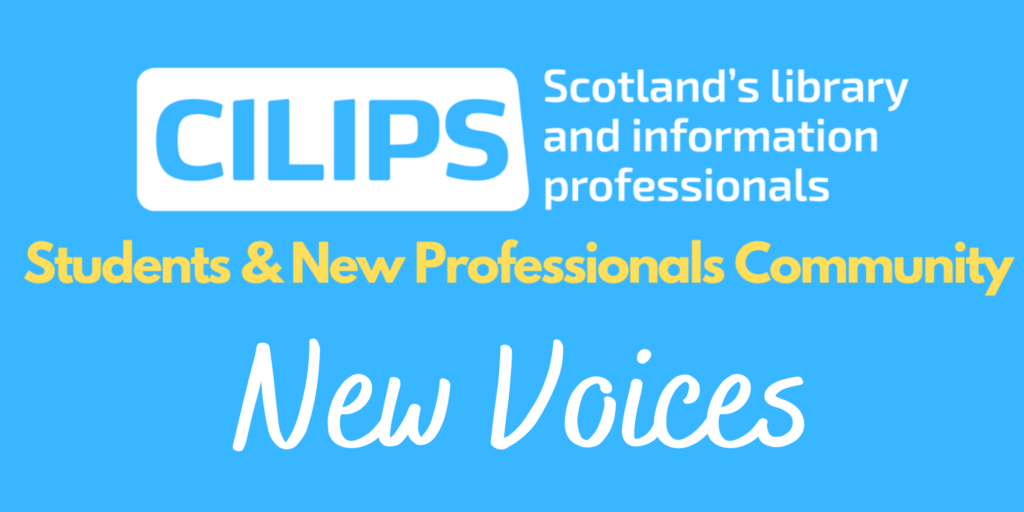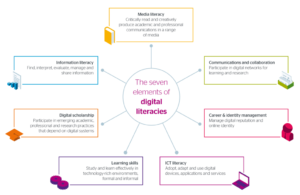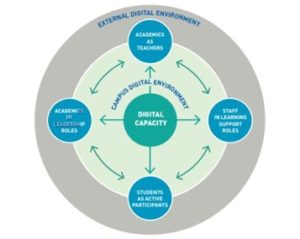New Voices RGU Student Series 2022 – Lorraine Connolly
Category: Blog, New Voices, New Voices, RGU Student Series 2022
In this 2022 Student Series for the New Voices blog, the CILIPS Students & New Professionals Community will be sharing the views of Robert Gordon University students from the MSc in Information and Library Studies. With special thanks to Dr Konstantina Martzoukou, Teaching Excellence Fellow and MSc Course Leader, for organising these fantastic contributions.
 Today, we hear from Lorraine Connolly, who works as a Branch Librarian in Leixlip Library, Co. Kildare, Ireland for Kildare Library and Arts Services. Currently pursuing the MSc ILS Course (online) at RGU, Lorraine’s role includes that of both Age Friendly Mentor and Digital Ambassador.
Today, we hear from Lorraine Connolly, who works as a Branch Librarian in Leixlip Library, Co. Kildare, Ireland for Kildare Library and Arts Services. Currently pursuing the MSc ILS Course (online) at RGU, Lorraine’s role includes that of both Age Friendly Mentor and Digital Ambassador.
Digital Literacy, Digital Natives and Digital Immigrants – Inclusivity in Higher Education
Digital Literacy… difficult to define? Yes. Is it a self-measuring concept? A way of labelling our interactions with our ever-evolving technological world? Perhaps our individual levels of Digital Literacy are closely intertwined with our life experiences? JISC (2014) defines Digital Literacy as ‘those capabilities which fit an individual for living, learning and working in a digital society’, and these competencies are represented in its ‘Seven Elements of Digital Literacies Model’:
In the world of Higher Education, digital, media and information literacies are all-encompassing and each of these seven competencies has an essential (if overlapping) part to play. The role of Information Professionals in providing an all-inclusive service has never been more challenging; students have differing communication preferences, learning methods, socio-cultural backgrounds and life experiences.
I would not be considered a ‘Digital Native’ as per the term coined by Prensky in 2001 to describe young people who ‘grew up’ with digital age tools – I was not raised in a technological world and recently had to adopt and adapt as a ‘Generation X’ student returning to University and entering a world of Wikis, Google Scholar, Mind Maps and Microblogging. But do I see myself as one of Prensky’s ‘Digital Immigrants’ – ‘those of us who were not born into the digital world but have, at some later point in our lives, become fascinated by and adopted many or most aspects of the new technology’? I do recall (with horror) learning that formatting a floppy disc would wipe its contents. I also recall getting my first University email address one month before graduating. However this has not negatively affected the ease with which I now navigate the world of ICT – I do not struggle to use concept mapping software and I am not ‘fearful’ of screen sharing on Zoom or downloading .png files in Canva.
Why? It is clear that, age notwithstanding, there are overriding elements that influence my digital competencies – my background, work history, life experience and personality. These factors have enabled me to combine my ‘old-school’ methodologies with my current digital capabilities, putting me in the advantageous position of having the best of both worlds – I print out lecture notes and highlight in red pen, and I am writing this blog on paper… while downloading journal articles, retweeting and contributing to a Wiki. Digital Immigrant? No. Each student is an individual, independent learner – why not categorise us according to our digital understanding, creativity and innovation levels? As Jenkins states – ‘Surely, we should recognize what digital immigrants bring with them from the old world which is still valuable in the new, rather than simply focus on their lacks and inadequacies’. Let us not continue to give age more attention than it deserves in this debate…
To promoting inclusivity, students of all ages should be able to choose their starting point, their access point to learning – from printable lecture notes to recorded videos, Web 2.0 tools to group activities. This can be facilitated by –
- Collaboration between Information Professionals and Academics, facilitated by a designated ‘liaison’ to mediate, advise and bridge methodology gaps.
- Critically examining the emphasis placed upon traditional textbook lecturing versus digital tools.
- The introduction of mandatory, annual digital/media/information literacy refresher training for all third-level professional staff.
According to Devine (2015), ‘Significant digital capacity can only be built through sharing and alignment of perspectives that also include those provided by individual academic staff as practitioners, staff in learning support roles and, of course, students themselves’.
Mixing and matching different approaches is key – Information Professionals cannot ask each and every student ‘How do you learn?’, whether digital native, digital immigrant or in-between. As a mature student, I can ask – ‘What added-value can I bring to the digital table?’.
Thank you to Lorraine for this thought-provoking reflection on the nuances involved with digital literacy definitions, and how in all cases collaboration and perspective-sharing are key to inclusivity.
Stay tuned for more in the 2022 New Voices RGU Student Series coming soon and be sure to check out the rest of CILIPS SNPC’s New Voices blog.


